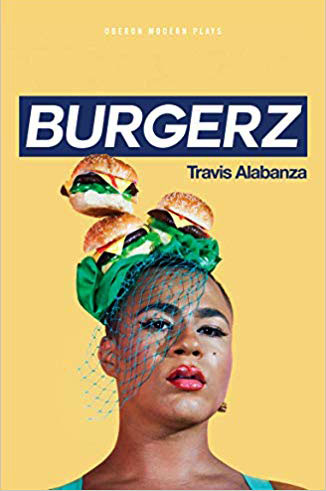 It is an interesting, but not particularly edifying fact about humans that we tend to like people like ourselves. Not only that, but we tend to believe people like ourselves rather than others: suits are more likely to believe suits, bearded lefties bearded lefties and so on. No particular harm done until that preference carries over into prejudice against anyone not like ourselves, i.e. sharing our religion, skin colour, class, place of origin etc. I’ve no doubt evolutionary psychologists/sociologists can explain the reasons as to why this state of affairs came about. Nonetheless the reasons as to why we should get along with people not like ourselves are beginning to pile up. Travis Alabanzas’s play is about one small, but no less urgent, corner of society’s ‘to do’ list in that regard.
It is an interesting, but not particularly edifying fact about humans that we tend to like people like ourselves. Not only that, but we tend to believe people like ourselves rather than others: suits are more likely to believe suits, bearded lefties bearded lefties and so on. No particular harm done until that preference carries over into prejudice against anyone not like ourselves, i.e. sharing our religion, skin colour, class, place of origin etc. I’ve no doubt evolutionary psychologists/sociologists can explain the reasons as to why this state of affairs came about. Nonetheless the reasons as to why we should get along with people not like ourselves are beginning to pile up. Travis Alabanzas’s play is about one small, but no less urgent, corner of society’s ‘to do’ list in that regard.
Alabanza’s play is a monologue, polemical and didactic about the choices we make on the one hand and the connections we make with our fellow human beings on the other. What lifts it is the fact that it is personal and deeply felt. it is the considered response to an act of petty discrimination – the throwing of a burger (at the writer). Travis is free with his metaphors, which are as gently playful as the tone of the piece. The burger itself becomes a metaphor (the meat needs the bun to be whole) and a childhood colouring book, requiring the person to stay within the lines stands as a peg to developing individuality. And the making of a burger on stage with the help of a member of the audience ensures the unthinking act of prejudice is kept before the audience’s mind
I can’t imagine what it’s like to be so vilified by members of your society, to be uncomfortable with what you are merely because of your surroundings. Being a vegetarian in a steak house probably doesn’t come near, but does hint at the sense of unease on the one hand and the erroneously assumed sense of threat on the other (meat eaters tend to think veggies are implicitly having a go at them). At the end of Shaw’s, Saint Joan, the twentieth century papal emissary is sniggered at by the ‘medieval’ cast for his strange dress, to which he replies, ‘I do not understand. You are all in fancy dress: I am properly dressed,’ drawing the response from Dunois, ‘All dress is fancy dress, is it not, except our natural skins?’
Burgerz is a plea for us to celebrate or at least accept the unconventional as a legitimate part of who we are. It moves because of the yearning that underlies the plea, in his terms, to recognize all parts of the burger as important as any other in making the whole. Graham Wyles November 2018
The play was first performed at the Hackney Showroom in October 2018
Paperback: 80 pages
Publisher: Oberon Books Ltd (25 Oct. 2018)
Language: English
ISBN-10: 178682647X
ISBN-13: 978-1786826473


